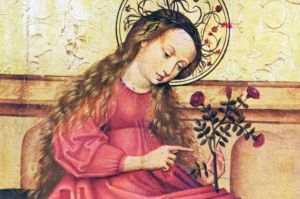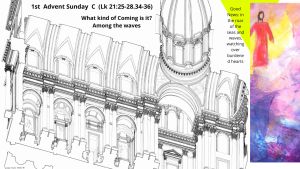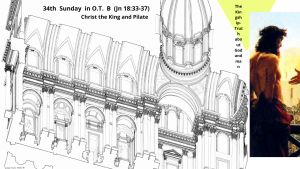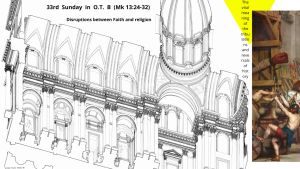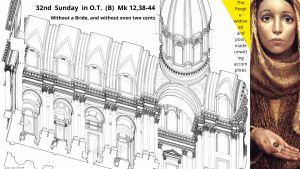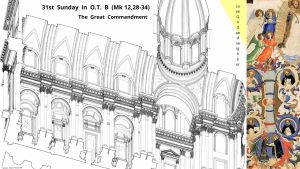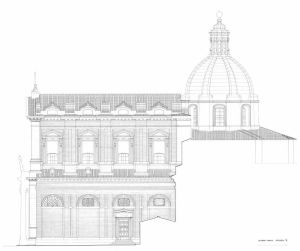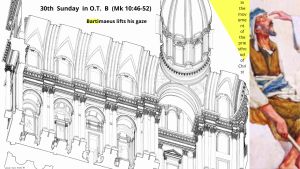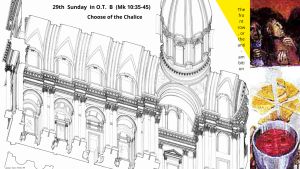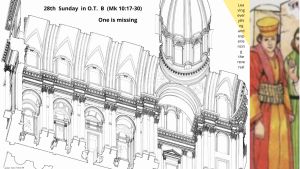
don Giuseppe Nespeca
Giuseppe Nespeca è architetto e sacerdote. Cultore della Sacra scrittura è autore della raccolta "Due Fuochi due Vie - Religione e Fede, Vangeli e Tao"; coautore del libro "Dialogo e Solstizio".
Immaculate Conception: Personalism made safe
Advent: but what kind of Coming is it?
Jesus and Pilate: Truth about the King and the Man
Upheavals and things in place: between Faith and religion
Widow-people: without a Bride, and without even two pennies
Listen Israel: Love God and Neighbor
BRIEF REFLECTION ON 'ENVY' (by Francesco Giovannozzi, psychologist and psychotherapist)
Some days I was in a bar. There were some young people talking about their daily problems, when at a certain point the issue of envy came up.
The discussion on this topic was also taken up by the people who were there and someone joking or not (who knows) expressed: but how do you remove it?
I was reminded of old magical and superstitious practices from when I was a child. Or of all those times I have heard people say in the face of a failure or unfavourable situation: 'I must go and have envy removed'. And not only from simple people, but also from people with a certain degree of culture. As already argued in previous articles, even the man of science has his irrational side.
In the Treccani dictionary under envy we read: 'An unpleasant feeling for a good or quality of others that one would like for oneself, often accompanied by aversion and resentment for the one who possesses it instead'.
It is a feeling we all have and which we refuse to acknowledge because it is often something we are ashamed of. We often believe that this feeling has occult powers and therefore believe that pseudo-magical practices can free us. Nothing could be more illusory.
Melanie Klein wrote the book 'Envy and Gratitude' where she addresses this issue.
This author investigated in depth the first relationship the child has with the mother's breast and then with the mother when it manages to perceive her as a total object. A primary relationship that can also be difficult due to maternal causes: non-acceptance of the baby, difficulties in childbirth, or reluctance to breastfeed.
But there are also causes that can arise from the baby, and among these is envy, which prevents a good relationship with the breast.
The baby may feel a great deal of anger towards the breast, whether it is perceived as good, i.e. that it satisfies him, or as bad - because it does not satisfy his needs and generates envy because it possesses something he does not have.
And so the infant tries to harm him as he can, by putting his naughty bits in (spitting, urinating, biting, etc.).
In a person a strong presence of envy can damage his way of life, and his relations with others; not because of external causes, but because he cannot understand the good object.
He feels that he has ruined it and made it bad.
He cannot feel its good feelings, and this increases his envy and hatred.
In contrast, the child who is more able to feel love and gratitude for the gift he has received, experiences the good object more.
Consequently, gaining confidence in his own goodness, he will overcome envy and hatred more easily.
The person suffering from envy can hardly enjoy the joys of life, because the relationship with the mother and then with any other object of love is damaged.
Positive feelings encourage the child to keep the milk received as good.
Experiencing gratitude is the basis of pleasure, and later he will be able to establish satisfying relationships, because destructive desires are diminished: his anxieties will be less.
Envy does not make us live well, for the simple reason that it goes against life - and the outside world becomes our enemy.
Or it makes us live a 'breast' that is too idealised or too bad.
A person with a good capacity to love can love the 'object' while seeing its limitations.
One positive thing that envy can operate in us is the possibility of improving ourselves.
Often, for those who seek help from a professional, among the various issues that the person brings to analysis, this problem must be addressed.
If the analyst is well aware of these destructive parts, he will be able to lead the person in front of him to recognise the negative parts, and to mitigate them with love and positive feelings.
The well-adjusted person will bear his or her own feelings of guilt better, and will not need to see them on others. .
Very often it is difficult to bear ourselves.
Francesco Giovannozzi Psychologist - Psychotherapist.
Barthymeus looks up from a middle life
Choice of the Chalice, or the front row
One you miss: leaving everything behind and experiencing the reversal
Familiarity at the human level makes it difficult to go beyond this in order to be open to the divine dimension. That this son of a carpenter was the Son of God was hard for them to believe. Jesus actually takes as an example the experience of the prophets of Israel, who in their own homeland were an object of contempt, and identifies himself with them (Pope Benedict)
La familiarità sul piano umano rende difficile andare al di là e aprirsi alla dimensione divina. Che questo Figlio di un falegname sia Figlio di Dio è difficile crederlo per loro. Gesù stesso porta come esempio l’esperienza dei profeti d’Israele, che proprio nella loro patria erano stati oggetto di disprezzo, e si identifica con essi (Papa Benedetto)
These two episodes — a healing and a resurrection — share one core: faith. The message is clear, and it can be summed up in one question: do we believe that Jesus can heal us and can raise us from the dead? The entire Gospel is written in the light of this faith: Jesus is risen, He has conquered death, and by his victory we too will rise again. This faith, which for the first Christians was sure, can tarnish and become uncertain… (Pope Francis)
These two episodes — a healing and a resurrection — share one core: faith. The message is clear, and it can be summed up in one question: do we believe that Jesus can heal us and can raise us from the dead? The entire Gospel is written in the light of this faith: Jesus is risen, He has conquered death, and by his victory we too will rise again. This faith, which for the first Christians was sure, can tarnish and become uncertain… (Pope Francis)
The ability to be amazed at things around us promotes religious experience and makes the encounter with the Lord more fruitful. On the contrary, the inability to marvel makes us indifferent and widens the gap between the journey of faith and daily life (Pope Francis)
La capacità di stupirsi delle cose che ci circondano favorisce l’esperienza religiosa e rende fecondo l’incontro con il Signore. Al contrario, l’incapacità di stupirci rende indifferenti e allarga le distanze tra il cammino di fede e la vita di ogni giorno (Papa Francesco)
An ancient hermit says: “The Beatitudes are gifts of God and we must say a great ‘thank you’ to him for them and for the rewards that derive from them, namely the Kingdom of God in the century to come and consolation here; the fullness of every good and mercy on God’s part … once we have become images of Christ on earth” (Peter of Damascus) [Pope Benedict]
Afferma un antico eremita: «Le Beatitudini sono doni di Dio, e dobbiamo rendergli grandi grazie per esse e per le ricompense che ne derivano, cioè il Regno dei Cieli nel secolo futuro, la consolazione qui, la pienezza di ogni bene e misericordia da parte di Dio … una volta che si sia divenuti immagine del Cristo sulla terra» (Pietro di Damasco) [Papa Benedetto]
And quite often we too, beaten by the trials of life, have cried out to the Lord: “Why do you remain silent and do nothing for me?”. Especially when it seems we are sinking, because love or the project in which we had laid great hopes disappears (Pope Francis)
E tante volte anche noi, assaliti dalle prove della vita, abbiamo gridato al Signore: “Perché resti in silenzio e non fai nulla per me?”. Soprattutto quando ci sembra di affondare, perché l’amore o il progetto nel quale avevamo riposto grandi speranze svanisce (Papa Francesco)
The Kingdom of God grows here on earth, in the history of humanity, by virtue of an initial sowing, that is, of a foundation, which comes from God, and of a mysterious work of God himself (John Paul II)
duevie.art
don Giuseppe Nespeca
Tel. 333-1329741
Disclaimer
Questo blog non rappresenta una testata giornalistica in quanto viene aggiornato senza alcuna periodicità. Non può pertanto considerarsi un prodotto editoriale ai sensi della legge N°62 del 07/03/2001.
Le immagini sono tratte da internet, ma se il loro uso violasse diritti d'autore, lo si comunichi all'autore del blog che provvederà alla loro pronta rimozione.
L'autore dichiara di non essere responsabile dei commenti lasciati nei post. Eventuali commenti dei lettori, lesivi dell'immagine o dell'onorabilità di persone terze, il cui contenuto fosse ritenuto non idoneo alla pubblicazione verranno insindacabilmente rimossi.


